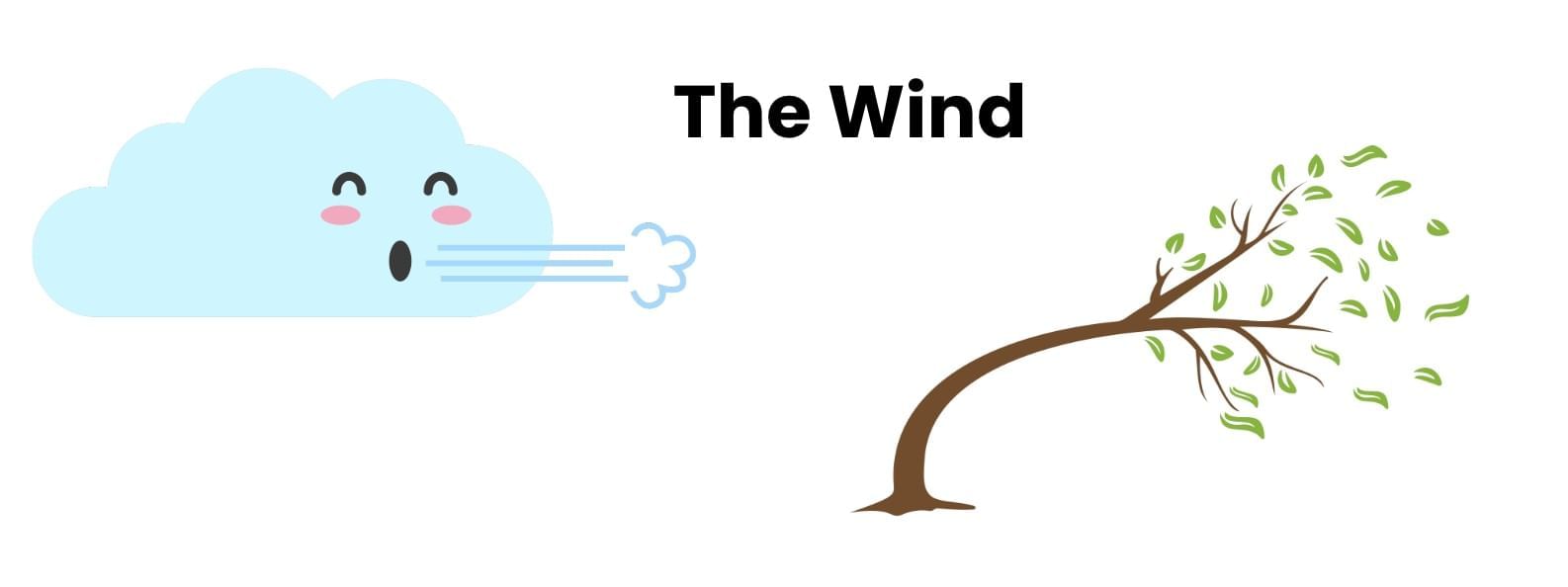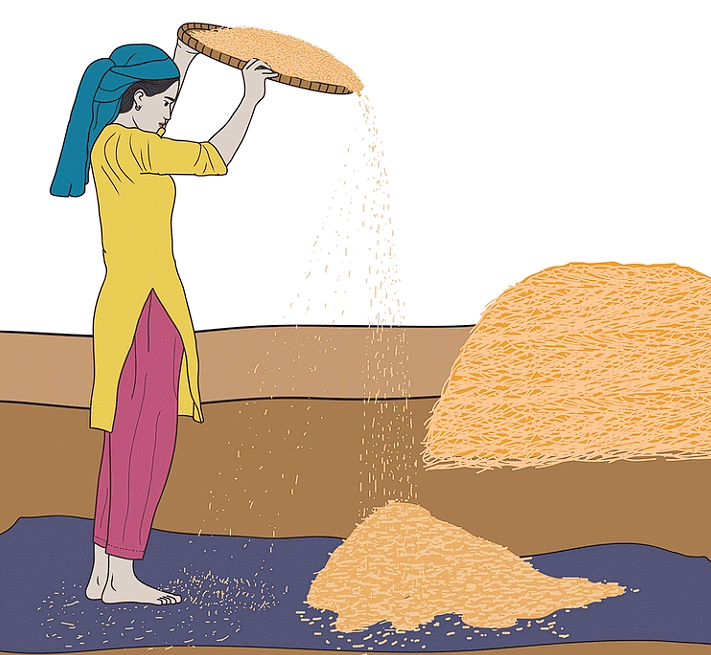Class 9 Beehive Poem Chapter 2 Question Answers - Wind

Q1: Give in brief the central idea of the poem ‘Wind’.
Ans: The central idea of the poem "Wind" is that life’s challenges, like the wind, can be harsh to the weak but kind to the strong. The poet encourages us to build strong homes, bodies, and hearts to face difficulties bravely and turn challenges into opportunities.
Q2: What lesson can we learn from the action of the wind on the fire?
Ans: The wind blows out weak fires but makes strong fires burn brighter and stronger. This teaches us that if we are weak, challenges can defeat us, but if we are strong, they can make us even better.
Q3: How does the wind poke fun at weaklings?
Ans: The poet says the wind god winnows, meaning it separates the weak from the strong. Like a fan blowing away light chaff from grain, the wind crushes weak houses, doors, and lives but spares the strong ones.
Q4: What does the poet say the wind god winnows?
Ans: The poet states that the wind god winnows because it is nature’s way of rejecting frail and unhealthy objects. In a way, the wind god separates the weak from the strong, like the chaff is separated from the grain. The wind god is the winnower, and the wind is the winnowing fan, and the weak men are the grain. Winnowing
Winnowing
Q5: What does the poet think of the wind god’s attitude to the requests of people?
Ans: The poet thinks the wind god doesn’t listen to people’s requests to blow gently. It ignores their pleas and blows fiercely anyway, showing that it does what it wants, no matter what people say.
Q6: Why does the poet want people to have firm bodies and strong hearts?
Ans: The poet wants people to have firm bodies and strong hearts so they can stand up to life’s challenges, like the wind. Strong people can face difficulties bravely and even make the wind their friend.
Q7: Why does the poet plead with the wind to blow softly?
Ans: The poet pleads with the wind to blow softly because a gentle wind is safe and pleasant. He doesn’t want it to cause destruction by breaking shutters, scattering papers, or tearing books, as it does when it blows hard.
Q8: What kind of destruction is caused by the violent wind?
Ans: The violent wind causes a lot of damage. It breaks window shutters, scatters papers everywhere, throws books off shelves, tears their pages, and even brings heavy rain that adds to the destruction.
Q9: Explain the line: You brought rain again”.
Ans: The line “You brought rain again” shows the poet’s frustration with the wind. It means the wind carries clouds that cause rain, which can lead to more destruction, like flooding, along with the wind’s other damages.
Q10: What should people do to avoid the destruction caused by the strong winds?
Ans: To avoid the destruction caused by the strong wind, it is essential that people construct solid, sturdy houses with firm, strong doors. The buildings should be able to resist the attack of the violent wind.
Q11: What does the wind symbolise in this poem?
Ans: In the poem, the wind symbolises life’s challenges and problems. Just as the wind breaks weak things like houses and books, difficulties in life test us, and only the strong can overcome them.
Q12: Why does the poet remark that the friendship of wind is good?
Ans: The poet remarks that the friendship of the wind is good because the wind has both kind and wicked aspects. If we are weak, its destructive force causes havoc. But if we are strong, we may harness its power and use it for constructive purposes. As a friend, the wind works for the benefit of mankind.
Q13: How does the wind behave with stronger fires?
Ans: It behaves like a friend with strong ones. It cannot destroy them. So, it accepts its might and stops troubling them. Rather, it increases its strength by contributing its own.
Q14: What does the wind do with the books?
Ans: The wind throws books off the shelf, scatters them on the floor, and tears their pages. It creates a big mess, showing how powerful and careless it can be with weak things.
|
180 videos|975 docs|124 tests
|
FAQs on Class 9 Beehive Poem Chapter 2 Question Answers - Wind
| 1. What causes wind to blow? |  |
| 2. How is wind measured? |  |
| 3. What are the different types of winds? |  |
| 4. How does wind energy work? |  |
| 5. What are the benefits of wind energy? |  |






















